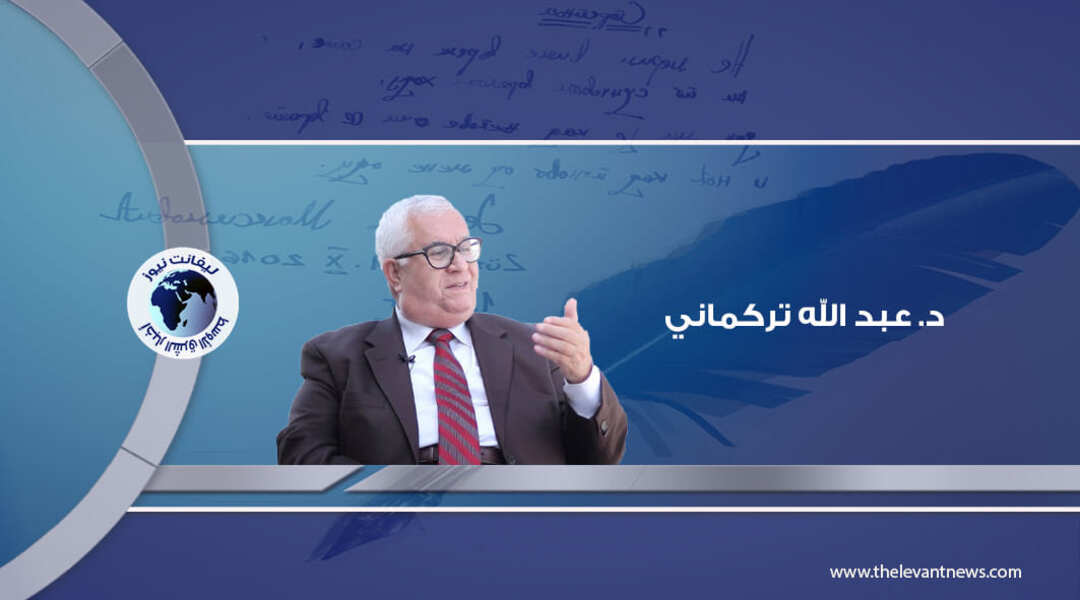-
The Importance of the Neutrality of the Syrian National State (2-3)

The West has recognized the importance of religion in the lives of peoples, as no political system, regardless of its degree of openness, has succeeded in removing religion from the public life of individuals and communities. What has occurred is a necessity to view religion as a "tool" aimed at serving human interests, rather than a means to suffocate them with rituals that may ultimately lead to the opposite of what is intended.
It is no coincidence that the most pressing question raised by the thinkers of the Enlightenment, which had a profound impact on the historical developments of the 18th and 19th centuries, is: From where does political authority derive its legitimacy to govern people's lives and societal interests?
For Jürgen Habermas, who published his book "The Structural Transformation of the Public Sphere" in 1962, he did not only neglect religion, but also proceeded to establish "anti-religious assumptions." However, in the first decade of the third millennium (in "The Theory of Communicative Action"), he returned to consider religious issues. He regarded the Enlightenment as an "unfinished" project and placed "communicative rationality against instrumental rationality," thereby ensuring "the personal and political independence of the individual." In his later writings, he emphasized the "necessity of developing a post-secular stance that takes into account the vitality of religion in different societies." He argued that the public sphere is "a domain for critical rational debate, and allowing access to it hinges on the ability and willingness to engage in an open field, where religious ideas are available only to their adherents from a specific tradition, and thus must be translated into the language of public reason."
Conversely, Charles Taylor objected to the concept of "public reason," asserting that the important aspect is "mutual recognition and engagement in the common concerns of all holders of beliefs without focusing specifically on religion." The secularism supported by Taylor is based on the values of the French Revolution before the emergence of extreme secularism, which means dialogue between religion and state, and can be considered public choices: freedom, fraternity, and equality, protecting people's choices and encouraging listening to all. There should be no coercion in religion and belief, and religious freedom must also include the freedom not to believe. There must be equality among people of various beliefs or fundamental convictions, and no religious viewpoint or worldview can hold a privileged status or be adopted as the state's official doctrine. All spiritual currents in the state should find a receptive audience, and this listening contributes to integrating them into the communicative process to determine society's purpose, i.e., its political identity.
The answer came in the theories posed by Jean-Jacques Rousseau in "The Social Contract," regarding "civil religion," which "retains only the religion of man, which does not conflict with Christianity or other religions that the state refuses to adopt. This state religion does not care about the details concerns of sects, and the differences of faiths are unimportant for this religion embraced by the social contract on which the civil state is based."
Immanuel Kant, too, saw no contradiction between faith and reason in his philosophy and in his life, but he described religious institutions and authoritarian power as entities that trample on the sacred rights of human beings. Kant's approach exemplifies the separation of reason and rational judgments from faith and faith-based action. The basis of understanding his theory of religion—or more precisely, hope—"lies in the modern individual's anticipation of the convergence of happiness and doing good," where happiness, in his view, is secular, approaching the functional definitions of religion. Even the religious individual may find worldly happiness in the steadfast faith in doing good and standing against injustice, as might a secular individual, religious or not, in the faith-based aspect of doing good and resisting injustice.
Likewise, Hegel, following Kant, criticized the Enlightenment's dismissal of religion as mere superstition, believing that the religious phase is a stage in the emergence of reason in history, posing questions akin to those of philosophy. He positioned religion within the framework of the self-awareness of reason, in the context of the development of absolute reason, placing it between art and philosophy. Contrary to the Enlightenment thinkers who preceded him, Hegel affirmed that "there must be a reconciliation of philosophy with the religious traditions accumulated over history to ensure that thought arises from universal reason and not from mere understanding." Thus, Kant aimed to illustrate essential points:
First, that employing reason outside of its limits leads to irrational results, and it is preferable to prevent reason from facing these outcomes, leaving them to another human intellectual activity, which is faith. Second, that there is no scope for subjecting faith or the ideas it stands upon to reason. Third, that religion is a moral social practice and must align with the requirements of practical/functional reason.
Max Weber studied the role of religion in modernity (sociology of religion), leading him to significant studies and theories suggesting that "religion was not merely an obstacle to modernity, but propelled
You May Also Like
Popular Posts
Caricature
opinion
Report
ads
Newsletter
Subscribe to our mailing list to get the new updates!





















